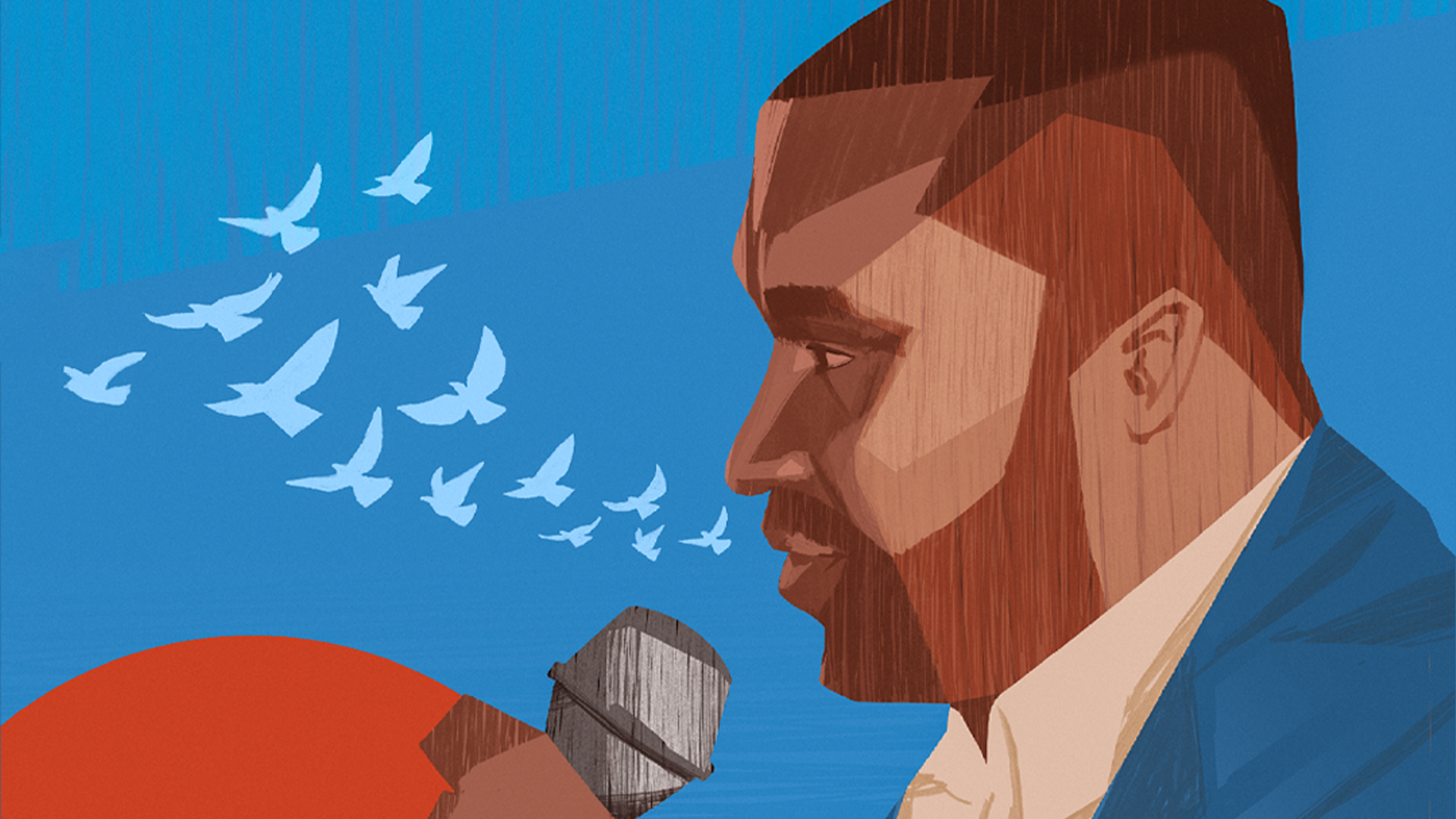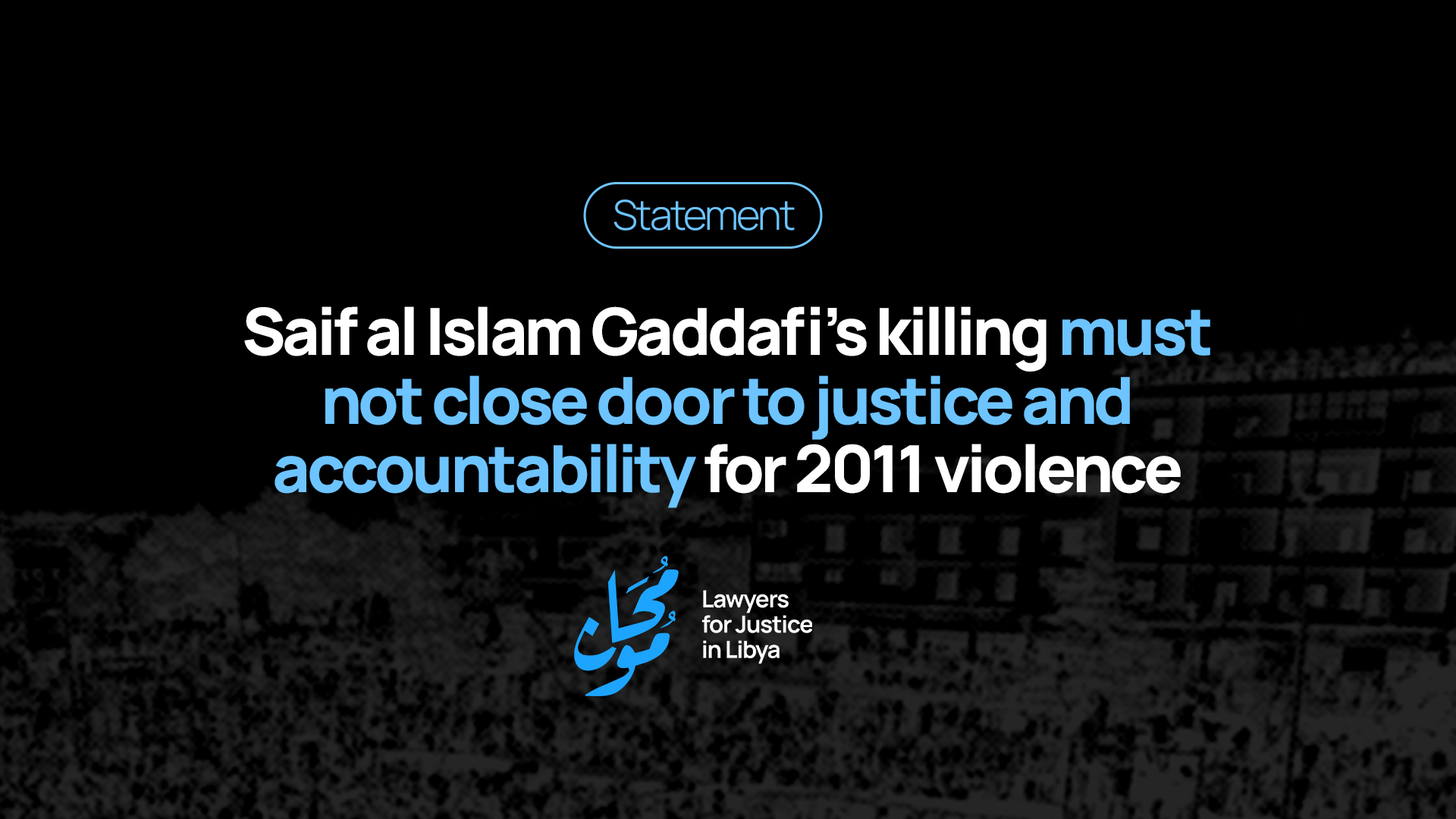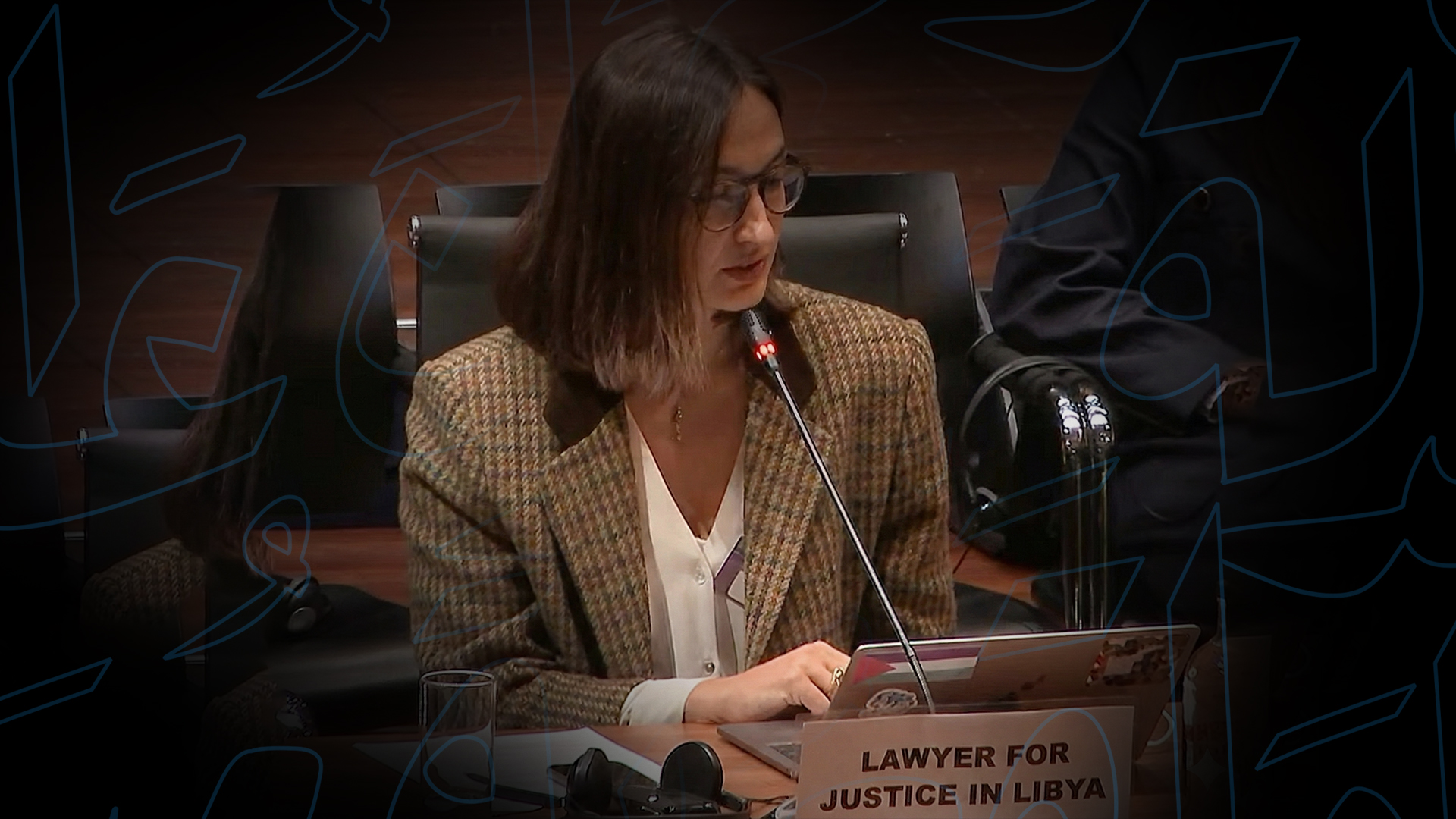Prosecutor's briefing to the UN Security Council fails to consider civil society’s urgent concerns on his completion strategy
On Tuesday, the Prosecutor of the International Criminal Court (ICC or the Court) briefed the UN Security Council on developments regarding the Libya situation, most notably outlining his roadmap to complete all investigations into crimes against humanity and war crimes committed in Libya, by the end of 2025.
Ahead of this briefing, Lawyers for Justice in Libya (LFJL), alongside 17 international and Libyan civil society organisations (CSOs) sent a letter to the Prosecutor raising concerns about the ability of the Office of the Prosecutor (OTP) to complete investigations within the 2025 timeframe. In particular, we noted Libya’s lack of effective cooperation with the Court over the past 13 years, and the absence of clear benchmarks that must be met to effectively complete investigative activities by the end of 2025.
Following Tuesday’s briefing, we welcome the Prosecutor’s announcement that completion is contingent on cooperation by the Libyan authorities and that he has adopted a set of benchmarks to complete the investigations, including the issuance of multiple additional arrest warrants and conducting at least one proceeding before the Court prior the end of 2025.
However, the briefing did not address concerns about the lack of cooperation by Libyan authorities so far. While the Prosecutor noted that authorities in Tripoli have issued multi-entry visas for OTP staff in the last six months, and pointed to official meetings with the authorities, including the Attorney General, around opportunities for a completion strategy in the Libya situation, we reiterate that cooperation must go further. The Libyan authorities should actively facilitate effective investigations across Libya, including in eastern and southern regions where unsafe and restricted access controlled by various actors brings many obstacles. The Prosecutor did not provide information on how his Office will carry out investigations in these regions or how cooperation with the relevant authorities and actors will take place.
The Libyan authorities must also cooperate with the arrest and transfer of wanted suspects to the Court, for example in the case of Saif Al-Islam Gaddafi, who is subject to a public arrest warrant since 2011. The four other arrest warrants announced in May 2023 by the Prosecutor, despite being under seal, also require Libya’s and other States’ cooperation.
In the joint letter sent to the Prosecutor, we also urged him to ensure meaningful consultation with CSOs, survivors, victims’ families, and affected communities during the development, as well as the implementation of the completion strategy.
We welcome the Prosecutor’s plan to have regular conversations with civil society, survivors, victims’ families and affected communities in the next 18 months, and beyond. This is imperative for successful completion, and for the Court to have a meaningful impact in Libya and continue building a relationship of trust with those affected by the crimes committed.
However, it remains unclear how the Prosecutor and the Court intend to facilitate such engagement. A regular interaction and meeting mechanism allegedly put in place by the OTP has yet to become operational, and the OTP needs to set out how this mechanism will facilitate safe and meaningful engagement.
We regret, therefore, that in his briefing the Prosecutor failed to acknowledge the oppressive environment faced by CSOs and human rights defenders (HRDs) working in Libya amidst a severe crackdown imposed by the Libyan authorities. As things stand, the OTP cannot meaningfully consult with CSOs and HRDs in Tripoli and other areas of Libya. The Prosecutor must urgently explore how consultation is possible under these circumstances, and make clear to Libyan authorities that protection of CSOs and HRDs, including their ability to support his Offices’ investigations, is a critical component of his completion strategy.
Despite these concerns, LFJL believes that the ICC can be a critical instrument for advancing accountability in Libya if it can meaningfully centre the voices and experiences of victims, survivors, affected communities and civil society who work tirelessly for justice and accountability in Libya. We look forward to the Prosecutor and the Court more widely addressing our concerns for better collaboration.





